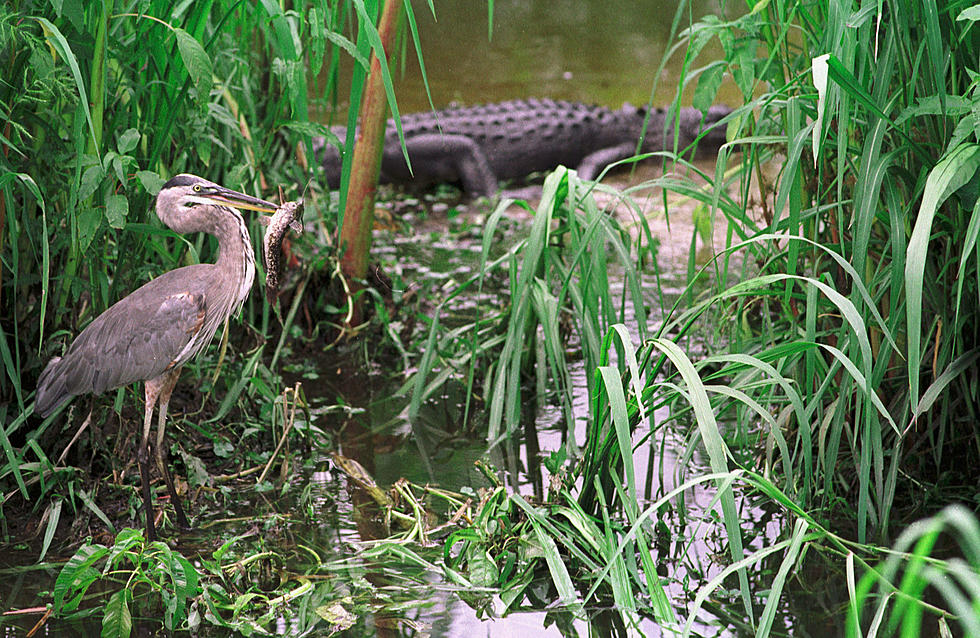
Scientists at Auburn Are Working on Combining Alligator and Catfish DNA
In what is arguably the most Louisiana science experiment we've ever seen, researchers at Auburn are working on a way to combine the DNA of catfish and alligators.
It might sound like the next big food craze during Lent, but there is actually a very good reason for them to be trying. As it turns out, it could make it a lot easier for us to farm catfish without worrying about them spreading disease.
Scientists Rex Dunham, Baofeng Su, and their colleagues at Auburn University are hard at work trying to fight the problem of disease in catfish farming, and the use of alligator DNA may just be the way to go.
The alligator gene, which Dunham’s research turned up as a potential answer, codes for a protein called cathelicidin. The antimicrobial protein is believed to help alligators avoid infection from wounds sustained when alligators fight and bite each other.
Dunham proposed artificially inserting that gene into catfish genomes to make them more resistant to infections. The scientists also worked to ensure the transgenic fish couldn’t reproduce and cause unintended harm by overtaking natives species in the wild if they were to escape the farms.
Both catfish and alligators are plentiful in Louisiana, but as a sustainable food source, there is always a pretty big demand for catfish across the south. If disease were to hit a catfish farm, it could kill a lot of the stock, causing problems in the market.
If the infusion of alligator genes into catfish makes them disease-resistant, that could mean all sorts of big things for the supply - most of which would benefit consumers. So far, the results seem generally positive.
Their testing showed the genetically altered fish seem more resistant to infection.
They put two different types of disease-causing bacteria in water tanks and found that gene-edited fish were much more likely to survive than fish that did not have gene editing.
“The survival rate of the cathelicidin transgenic fish was between two- and five-fold higher,” Dunham said.
However, it isn't a perfect, self-sustaining system (by design). As their research notes, the transgenic catfish are unable to reproduce on their own.
The transgenic fish are also sterile and can’t reproduce unless they are injected with reproductive hormones, the researchers said in their scientific paper published online at bioRxiv.
“This is a breakthrough in aquaculture genetics to confine fish reproduction and prevent the establishment of transgenic or domestic genotypes in the natural environment,” they wrote.
Catfish farms are big business in the south. The farms produce millions of pounds of catfish for consumption every year, and these fish would be totally safe to eat (which is the point of the process).
The protein made by the alligator gene will lose its biological activity when cooked, and it's not like we don't eat alligators already. Heck, we got it approved for Fridays in Lent, didn't we?
The biggest question for all of us, though: How does it taste?
“I would eat it in a heartbeat,” Dunham told AL.com.
10 Foods Louisiana People Can't Live Without
These Foods Never Expire
More From 92.9 The Lake

![Huge Alligator Easily Bends Metal Fence and Climbs Through [Watch]](http://townsquare.media/site/33/files/2023/03/attachment-YouTube-Via-The-Sun-Alligator-Bends-Bars-On-Fence-Florida.jpg?w=980&q=75)








